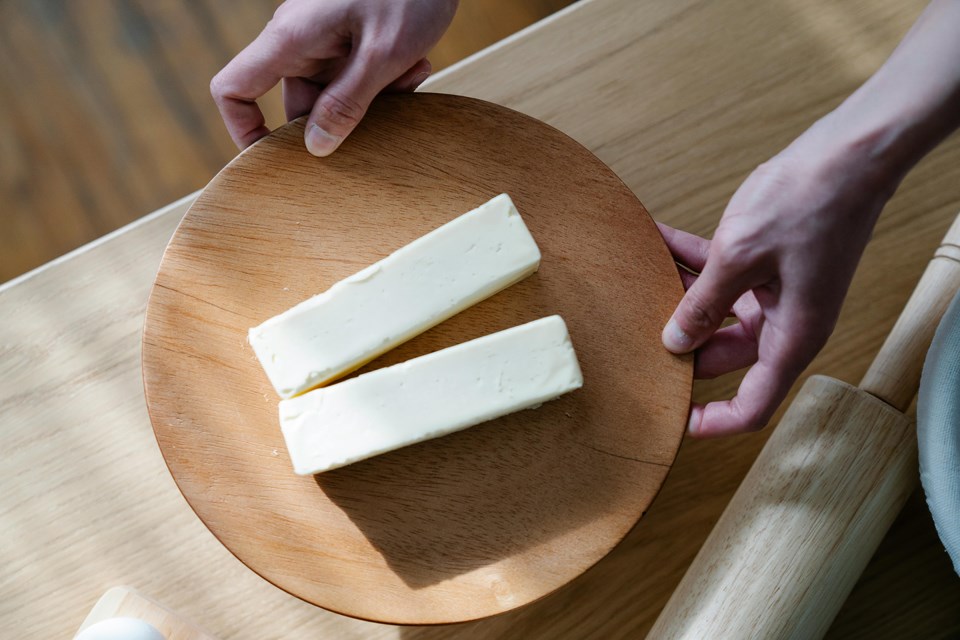Producing butter without cows, pastures or crops — using only carbon and hydrogen synthesized in a laboratory — sounds like science fiction. Yet in an era of climate urgency and resource constraints, it is being framed as the next frontier in food innovation. A new wave of philanthropists and investors is betting on disruptive technologies to reimagine how we eat.
One such player is Savor, a Chicago-based company partly backed by Bill Gates, who has become a prominent supporter of climate-focused food startups. The firm says it has created a product indistinguishable from traditional butter.
Unlike margarine, made from plant oils such as soybean or canola, this butter contains no animals or crops. Its fat molecules are built in a lab from carbon dioxide captured from the air and hydrogen drawn from water, processed through heating and oxidation. The result mimics the molecular structure of fats found in beef, cheese or vegetable oils, without a single acre of farmland.
Savor claims its butter would have a far smaller environmental footprint than traditional dairy. Commercially, the company is targeting a market launch within 12 to 18 months, likely at a premium comparable to organic butter. On nutrition, however, the company has said little. That leaves a larger question for consumers: will lab-made foods ease the strain of record grocery bills or simply add another pricey product?
Molecular agriculture, sometimes called synthetic or cellular food production, means building foods molecule by molecule in a lab instead of growing them on farms. It has gained traction across categories from meat to seafood to coffee. These products are marketed as climate saviours, but what really drives consumer choices, labelling, price, taste and nutrition, often comes second.
Sometimes the race for novelty veers into the absurd. In 2023, a UK company claimed it could make ice cream from recycled plastic. One has to wonder how far we are prepared to go in the name of saving the planet. And novelty isn’t the only risk: history shows that even once-celebrated food science can backfire.
Trans fats, for example, were once hailed for improving texture and shelf life, only to be banned after their damage to public health became undeniable.
This points to a deeper cultural and economic tension. Food is not simply about producing calories with minimal resources. It is also an expression of culture, heritage and pride, rooted in centuries-old traditions. According to the Food Sentiment Index published by the Agri-Food Analytics Lab at Dalhousie University earlier this year, just nine per cent of consumers cite the environment as their main purchase driver.
Cellular and molecular agriculture has its place, but it must be guided by the right motivations. Efforts that play God or lean on eco-authoritarian narratives risk alienating the very consumers they hope to attract. Credible pathways must integrate the cultural, economic and sensory dimensions of eating. In Canada, this connection is especially strong in dairy and agriculture, which remain both economic pillars and cultural touchstones.
The future of food will not be defined by lab breakthroughs alone. Success will hinge on taste, transparency, affordability and respect for tradition.
In the end, not all of us aspire to eat like Greta Thunberg.
Dr. Sylvain Charlebois is a Canadian professor and researcher in food distribution and policy. He is senior director of the Agri-Food Analytics Lab at Dalhousie University and co-host of The Food Professor Podcast. He is frequently cited in the media for his insights on food prices, agricultural trends, and the global food supply chain.
The commentaries offered on SaskToday.ca are intended to provide thought-provoking material for our readers. The opinions expressed are those of the authors. Contributors' articles or letters do not necessarily reflect the opinion of any SaskToday.ca staff.




